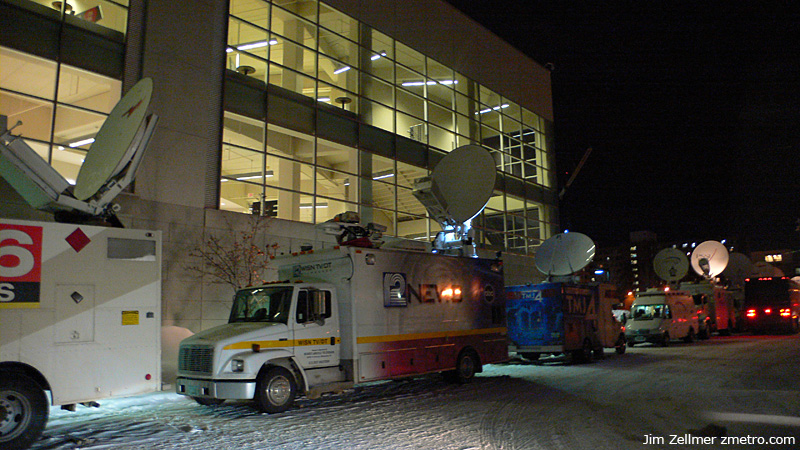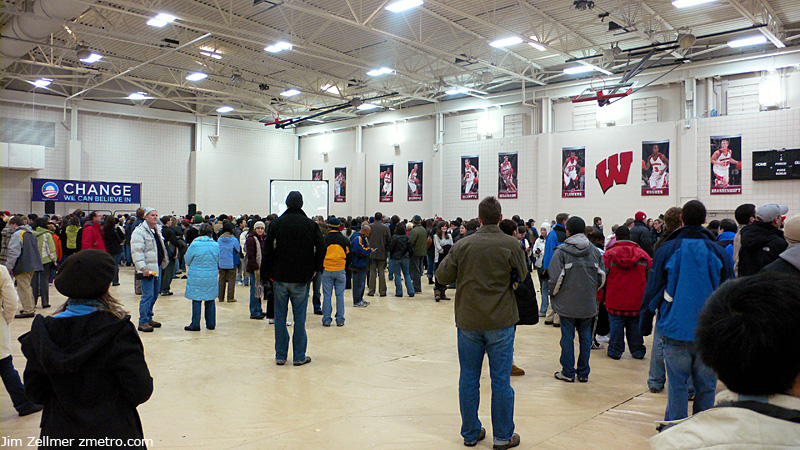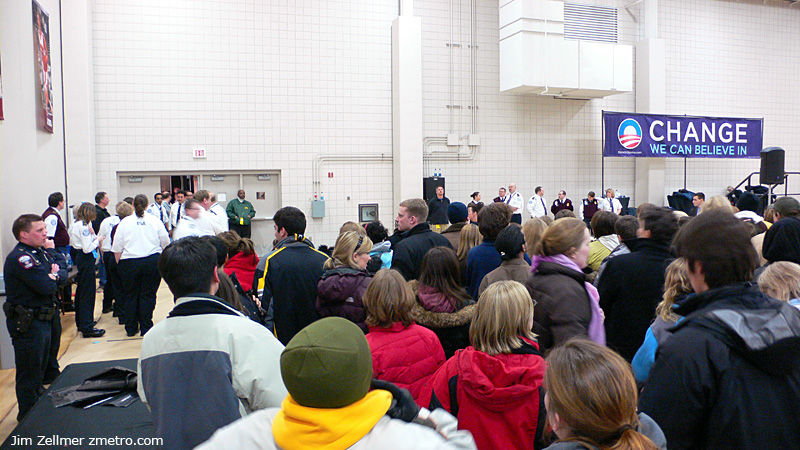The deal is, we’ve been told, that CEO pay is so high because demand for the 9-sigma talent of these Water Walking Wonders, so very beyond your and my shriveled imaginations, wildly exceeds supply when it comes to the 500 jobs as Fortune 500 CEOs. I contend that there are exactly 500 Guys (almost all guys, hence I can safely use the term) who believe that line of reasoning—namely the 500 CEOs of the F500 companies. (I guess I could also throw in the heads of the biggest search firms, who unearthed many of these so-far-beyond-the-pale dudes, which perhaps puts the total at 505 True Believers.)
The Inspiring Invincibles! Chuck Prince (Citigroup, formerly head of)! Stan O’Neal (Merrill Lynch, formerly head of)! Angelo Mozilo (Countrywide, formerly head of)! Tough cookies, each one. And yet, somehow, on their watches, The Three Geniuses allowed their firms, through grotesque negligence—maybe silliness or Theaters of the Absurd would be better words if the stakes weren’t so high—to get into positions in which tens upon tens of BILLIONS of greenbacks had to be written off from their books of account. Dodger, my 5-year-old Aussie, could have done a better job. (He could have bitten anybody who tried to make a $500K loan to someone who had never had a job or paid a bill and signed his name with an “X”; and peed on the pants of any 22-year-old University of Chicago PhD who said, “With my clever algorithm I’ve designed what’s called a ‘derivative’—it’ll make risk a thing of the past.” Yes, had Dodger bitten and peed on schedule, the likes of Citigroup would be ten or twenty billion ahead of their current position.) But, since the demand is so strong for the 500 different-from-mere-vice-presidents-Monumental-Management-Marvels, and the supply is so short, The Three Geniuses, on the basis of “Upside Potential,” were able to chalk up about a half BILLION buckaroos on their pay stubs over the last five years, while busily installing the tools necessary for Global Economic Meltdown. Well, I guess that means they’re “excellent” at something. Isn’t there some line about wool & eyes & pulling? (In most cases, their pay deals, especially the parts about “if you turn out to be an idiot, we’ll pay you a king’s ransom to clean out your desk,” were effectively set before they set foot in the executive suite. Wow, I wanna piece of that action!)
Category: Current Events
The Gospel According to Matthew
The Coronado Club, in downtown Houston, is an unlikely place to contemplate the end of life as we know it. Plush and hushed, with solemn black waiters in crisp black jackets, the private enclave practically exudes wealth and stability. Captains of local industry enter and exit purposefully, commanding their usual tables, wearing the best suits. Everybody knows everybody else. The light is flattering. The wine room is nicely stocked.
But here is Matthew R. Simmons, the head of one of the largest investment banking firms in the world, stabbing at his salad greens and heatedly discussing the chaos to come when, as he has long predicted, global oil production peaks and for the rest of our time on earth we struggle and suffer and barely endure under a diminishing supply of fuel until it disappears entirely. This idea is known as “peak oil,” and Simmons is its most fervent, and fearsome, apostle. As he puts it, “I don’t see why people are so worried about global warming destroying the planet—peak oil will take care of that.”
Slashing through his entrée, barely stopping for breath, he describes a bleak future, in which demand for oil will always surpass supply, the price will continue to rise—“so fast your head will spin”—and all sorts of problems in our carbon-dependent world will ensue. As fuel shortfalls complicate global delivery routes and leave farmers unable to run their tractors, we will face massive food shortages. Products made with petroleum, from asphalt and plastic to fabrics and computer chips, will also become scarcer and scarcer. Standards of living will fall, and people will not be able to pay their debts. Lending will tighten, and eventually there will be major defaults. Growth will cease, and hoarding will set in as oil becomes increasingly rare. Then, according to Simmons, the wars will begin. That is the peak oil scenario.
A Font We Can Believe in

Unless you’ve been avoiding television, newspapers, and all other forms of mass media for the past few months, you’ve probably seen Democratic presidential candidate Barack Obama’s “Change We Can Believe In” and “Stand for Change” banners. The typophiles among you have realized that the “change” font Obama’s campaign uses is Gotham, designed by Hoefler & Frere-Jones, originally as a commission for GQ Magazine.
The film Helvetica is well worth watching.
4GW Meets Campaign ’08: Is Obama inside Hillary’s OODA Loop?
James Fallows, viewing events from Beijing:
I have known and liked Chuck Spinney for a very long time, since I wrote about him and his original “defense reform” colleagues, notably John Boyd and Pierre Sprey, in the Atlantic and in National Defense in the early 1980s. Boyd of course originated the concept of the “OODA Loop.” This was the idea, derived from Boyd’s “Patterns of Conflict” briefing, that the victor in any conflict would not necessarily be the stronger or better-prepared party. Rather it would be the one who recognized changing realities, and chose and implemented the right new course of action, faster than the opponent. Boyd came up with the theory by analyzing aerial combat among fighter planes, but in his view it could be applied to every sort of human contest, from sports to business to armed conflict.
(OODA stands for Observe, Orient, Decide, and Act. To react to changing reality faster than the opponent can, or to interfere with the opponent’s ability to perceive realistically what is happening to him, is to “get inside his OODA loop.” Everything anyone would ever want to know about Boyd, Spinney, Sprey; about their contemporary colleagues like Chet Richards, Donald Vandergriff, WIlliam Lind, GI Wilson, etc; and about OODA loops and the related concept of 4GW, or Fourth Generation Warfare, can be found at two excellent, related “Defense and the National Interest” sites, here and here.)
And the theory also applies to politics, as Spinney has argued in a recent item about the contest for the Democratic nomination. His analysis, “Is Obama inside Hillary’s OODA loop?” comes after the jump. The incidents he mentions are all familiar; what’s at least a little new is his combination of them in Boyd-style perspective — in particular Bill Clinton losing his sense for how the battle is shifting. I am posting this before the Wisconsin results are known, and before the (in my view bogus) “plagiarism” flap has died down, so that Spinney’s observation can be tested against those results.
Interesting and useful read.
Winter Sunrise Photos


A beautiful, yet cold morning for Wisconsin’s spring primary election. While the endless winter continues, it is great to see the sun. Note the large icycles on these homes. Inevitably, spring will arrive.
Herb Kohl’s Office on FISA
I phoned Senator Kohl’s Washington office [(202) 224-5653] regarding his vote against the Dodd/Feingold telco immunity amendment yesterday. The telephone operator said that Senator Kohl supported an amendment that would have the government (we taxpayers) defend the telcos in court and that these cases should be heard in a court where intelligence information could be shared. John McCain voted with Senator Kohl, while Barack Obama voted with Russ Feingold and Hillary Clinton did not vote. David Isenberg has more as does Dave Farber. The Electronic Frontier Foundation posted a summery here.
Barack Obama in Madison
A few photos from a late arriving visitor to the University of Wisconsin’s Kohl Center.


While I did not arrive early enough to catch the speech inside the Kohl Center, I always find it interesting to note the political opportunism during these events. Governor Doyle, Milwaukee Mayor Tom Barrett and local Mayor Dave Cieslewicz all rated a nod from Obama. John Kerry’s 2004 appearance with Bruce Springsteen included a number of local politicians, including Elizabeth Burmaster, Wisconsin Department of Public Instruction Superintendent (a nonpartisan position).
Finally, a few Ron Paul supporters promoted their candidate in front of the proceedings.
Microsoft will pay high price for failing to learn history lessons
It’s the metaphors and similes that get me. It’s a shotgun marriage, declared one commentator, ‘with Google holding the gun’. Putting Microsoft and Yahoo together, said another, was like trying to produce an eagle from an alliance of two turkeys.
T his is unfair. Microsoft isn’t a turkey, but a profitable, boring mastodon that entertains fantasies about being able to fly. Yahoo, for its part, is an ageing hippy who invented hang- gliding but aspired to fly 747s and then discovered that he wasn’t very good at it. The mastodon hopes that by employing the hippy it will learn to hang-glide. The hippy’s feelings about the whole deal are plain for all to see.
Microsoft’s $44.6bn offer of cash plus shares for Yahoo has got everyone in a spin, partly because of its sheer size but mostly because they fondly imagine it heralds an exciting future. At last, they think – something that might stop the inexorable advance of Google toward world domination! If that’s what they’re hoping for, then this ain’t it, alas. This isn’t the opening of a new chapter in the history of the computing business, but – as John Markoff observed in the New York Times – ‘the final shot of yesterday’s war’. And even if the merger does take place in a reasonable timescale – and if it can be made to work – it won’t make much of a dent in Google.
Back to Reality: Sunrise After Madison’s Big Snowstorm

After pondering summer with a few photos, we’re back to reality blowing snow this morning. I think this photo captures our existence rather well, at the moment. Note the snow depth next to my snowblower’s intake. 13.3″ according to Channel3000.
The streets I drove were in good shape early today.
A Conversation About Peak Oil
NATE HAGENS is an editor of The Oil Drum, an online community that seeks to raise awareness about energy issues. A Ph.D. candidate in Natural Resources at the University of Vermont, Hagens’s particular areas of interest are the principles of net energy and the bio-physiological factors that drive our energy demand.
MATT SAVINAR is the editor and writer of Life After the Oil Crash, a blog which paints a bleak picture of what life on earth will look like when natural oil supplies run out. Savinar recently received his J.D. from the University of California at Hastings College of the Law, and his work is quoted extensively on the floor of the United States Congress.
One article in this month’s issue of Texas Monthly centers on Matthew Simmons, a Houston investment banker described as the most fervent apostle behind the idea of peak oil. How does the apocalyptic world that Simmons and other energy pessimists foresee in the near future—massive food shortages, a falling standard of living, wars—compare to your own predictions? What does the world look like with less oil?